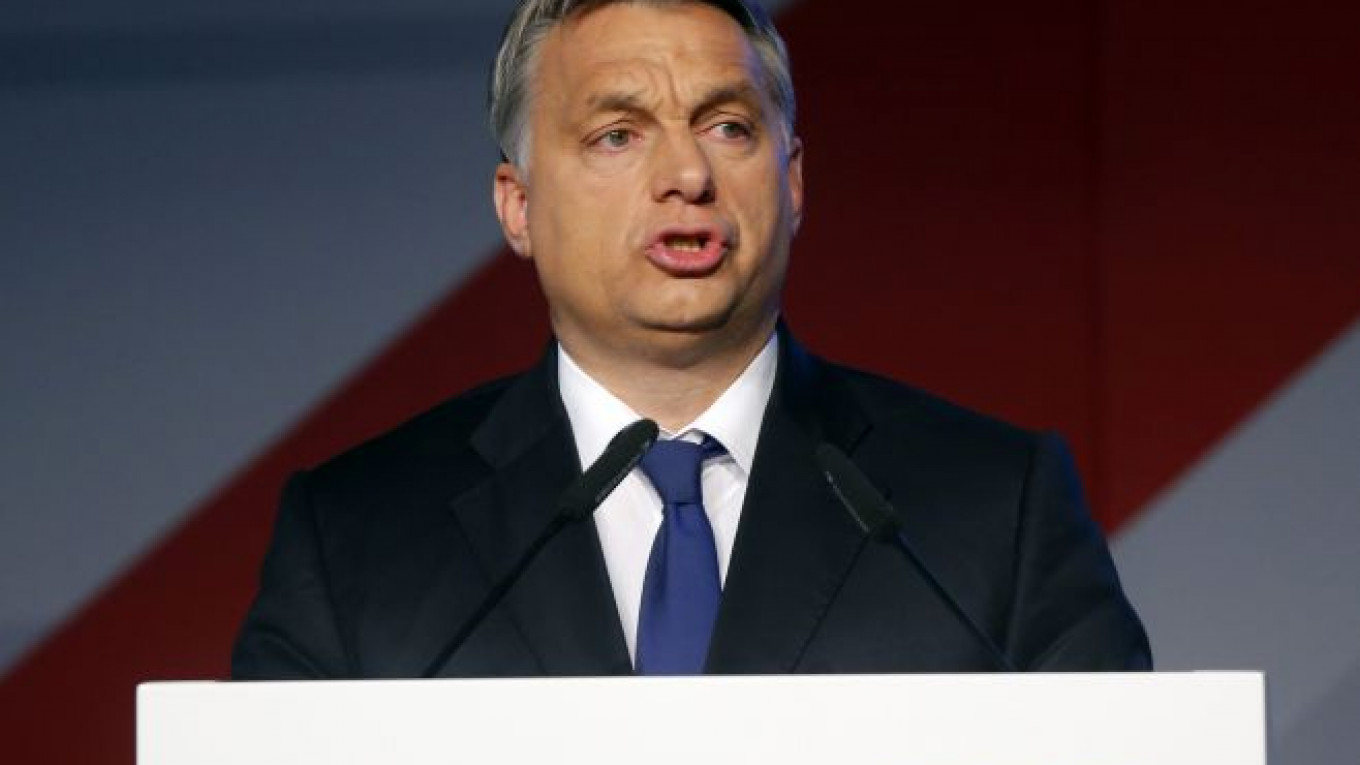President Vladimir Putin hailed Hungary as one of Russia's most important partners on Wednesday, giving his seal of approval to a budding relationship with a Soviet-era ally that is worrying some of its European Union allies.
While the Ukraine crisis is straining ties between many EU capitals and Moscow, Hungary — which relies heavily on Russia for natural gas supplies — is enjoying a rapprochement with the Kremlin.
"We share the attitude of the Hungarian leadership aimed at growing constructive dialogue, jointly carrying out planned very large investment projects," Putin told a Kremlin ceremony at which Hungary's new ambassador presented his credentials.
He said Russia considered Budapest "one of the most important political, trade and economic partners."
A senior Hungarian official said Wednesday that the country aimed to start building its stretch of the Russian-backed South Stream gas pipeline next year.
By contrast Brussels and Washington, which have slapped sanctions on Russian individuals and businesses over Ukraine, say the pipeline will entrench the Kremlin's energy stranglehold on eastern Europe. They worry Budapest's support for the project is a sign Hungary is drifting into Russia's orbit.
Hungarian Foreign Minister Peter Szijjarto also struck an upbeat tone after talks on Wednesday in Moscow with his Russian counterpart Sergei Lavrov, calling for a restoration of "pragmatic, mutually beneficial cooperation between Europe and Russia."
Szijjarto pointedly said the South Stream pipeline would contribute to energy security in central and eastern Europe.
Praise From Moscow
The West imposed the sanctions after Russia annexed Crimea in March and tightened them over its support for separatist rebels in eastern Ukraine. Budapest has said it will stand by the sanctions and stick up for Ukraine's sovereignty.
However, it has also stopped shipping gas to Ukraine that was helping Kiev to evade a Russian blockade, and has signed a 10 billion euro ($12.5 billion) deal for a Russian-designed nuclear power plant.
Prime Minister Viktor Orban says he is not returning Hungary to the orbit of Moscow, which exerted considerable power when the country was part of the Soviet bloc. Instead, Orban says he is being pragmatic, as Russia is Hungary's main trade partner outside the 28-nation EU. Polls show a majority of Hungarians back his policies.
"Our common task is to prevent a split of Europe and prevent a situation in which we have rivals, not allies, in Europe," Szijjarto said.
Lavrov said it was reasonable for any country to follow "its national interests first and foremost," praising Hungary for not promoting "Russophobe" policies in the EU and NATO.


